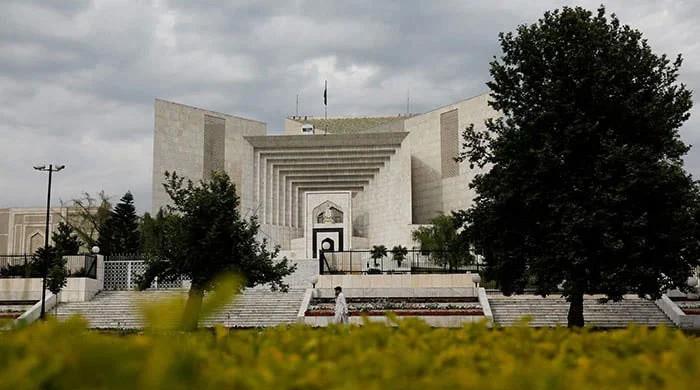Supreme Court Justices Disagree on Hearing of 26th Amendment Petitions
A letter from Chief Justice of Pakistan (CJP) Justice Yahya Afridi, released alongside minutes from judges’ committee meetings, has brought to light significant disagreements within the Supreme Court regarding the approach to hearing petitions that challenge the 26th Constitutional Amendment.
The documents, which detail meetings from October 31, 2024, to May 29, 2025, reveal that disparities arose after Justice Mansoor Ali Shah and Justice Munib Akhtar, while the CJP was away, held a committee meeting on October 31 and chose to schedule the case before a full court on November 4, 2024.
CJP Afridi raised objections to this action. In his letter, he asserted that, as per the Constitution, petitions submitted under Article 184(3) must be considered by a constitutional bench.
He stated that after consulting all 13 Supreme Court justices, nine were in favor of a constitutional bench hearing the matter, rather than a full court.
Despite persistent requests from Justices Mansoor and Munib for a full court session, CJP Afridi assigned the case to a constitutional bench. He contended that assembling a full court was unnecessary and could potentially disrupt judicial harmony and expose the court to criticism.
The published minutes also contain CJP Afridi’s formal response to Justice Mansoor’s earlier communication. In this response, he referenced constitutional clauses—including Article 191A and its subsections—to support his view that only a constitutional bench is authorized to hear the matter.
He emphasized that, according to the 2023 Committees of Judges Act, the constitutional committee of judges alone has the authority to determine case assignments.
According to the documentation, CJP Afridi pointed out that while two judges preferred a full court, the majority held a different opinion. He communicated this information, along with the rationale provided by the other justices, to Justices Mansoor and Munib.
The CJP’s letter also disclosed that two sealed letters from the “brother judges,” advocating for a full court, were delivered late in the afternoon. Consequently, he placed these letters—along with his sealed replies—in the care of the Judicial Commission’s secretary until the commission’s meeting on November 5, 2024.



Comments (0)
No comments yet. Be the first to comment!
Leave a Comment